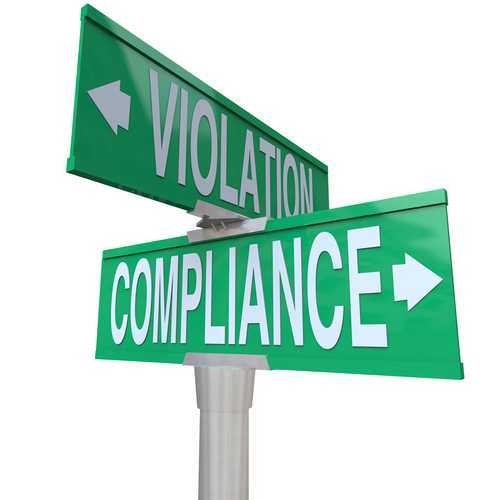
Fining fundamentals
Fining is an excellent method boards can use to enforce an association’s governing documents. However, if Florida Statutes are not precisely followed, the association risks levying unenforceable and uncollectable fines. The steps below are a useful guide to fining procedures in homeowner and condominium associations.
1. Establish a Fining Committee – Both homeowner and condominium associations must establish an independent fining committee. In homeowner associations, the committee must consist of at least three individuals who may not be officers, directors, or employees, or be immediately related to anyone holding such a title. In condominium associations, committee members must be an owner, but cannot be board members or live with board members. Fining committees in condominium associations must be at least two individuals, though odd numbered committees are preferable.
2. Prepare Courtesy Letter – Best practice is to issue a courtesy letter to the owner responsible for a violation of the governing documents or rules. This step is optional, but strengthens the association’s case when ultimately levying the fine. The letter should detail exactly what violation occurred, how much a fine may cost, and cite to the document where the restriction or rule is be found. The owner should be given a time frame to cure the violation.
3. Board Levies a Fine – To levy a fine, the homeowner or condominium association board must meet at a duly-noticed meeting. Minutes of the meeting should succinctly document the process.
4. 14 Day Notice of Appeal Letter – After the board meets to levy a fine, an appeal letter must be sent to the owner permitting the owner to appeal the fine before the fining committee. The letter must be issued at least 14 days prior to the hearing. In addition, the letter should make clear the owner has been fined, provide authority for the fine, and include the cost of the fine.
5. Fining Committee Appeal Hearing – Regardless of whether the owner requests to meet before the fining committee at a hearing, it is best practice for the fining committee to meet and affirm the fine. If the owner does request a hearing, the fining committee should allow the owner to state their objection. The fining committee should then vote to confirm or reject the fine.
6. Final Fine Letter – Once the fine is imposed, a final letter should be issued detailing the fine, the restriction or rule that was violated, the amount of the fine, and the deadline to pay. The fine may not be due sooner than five days after being imposed.
7. Collecting Fines – Fines in homeowner associations are capped at $100 per violation, unless the governing documents specify more or less. Fines in condominiums may not exceed $100 per day. In both homeowner and condominium associations, total fines for a continuing violation may not exceed $1,000, although homeowner associations allow greater fines if the governing documents permit.
In homeowner associations, fines greater than $1,000 may be secured by a lien on the owner’s property. Condominium associations do not permit this remedy, but may suspend an owner’s use of common elements if the fine remains unpaid for more than 90 days. If an owner owes more than $1,000 in fines or other obligations at a condominium association, voting rights may be suspended. Homeowner associations may also suspend use of common elements and voting rights if a fine is unpaid for more than 90 days. In homeowner and condominium associations, a small claims court lawsuit may also be filed to obtain delinquent fines.
Associations must be mindful when levying a fine and carefully follow these steps. If fines were not previously levied for violations, the association should put the community on notice that moving forward fines will be used to enforce the governing documents. A written fining policy available to members will put the community on notice, and may even reduce the likelihood of future violations.
CATEGORIES
RECENT POSTS
ARCHIVES
- Mar 2023 (1)
- Apr 2022 (1)
- Feb 2022 (1)
- Oct 2021 (1)
- Sep 2021 (1)
- Jul 2021 (1)
- May 2021 (1)
- Mar 2021 (1)
- Feb 2021 (1)
- Jan 2021 (1)
- Dec 2020 (1)
- Oct 2020 (1)
- Sep 2020 (1)
- Jul 2020 (1)
- Mar 2020 (3)
- Feb 2020 (1)
- Jan 2020 (1)
- Dec 2019 (1)
- Oct 2019 (1)
- Sep 2019 (1)
- Aug 2019 (3)
- Jul 2019 (1)
- Apr 2019 (1)
- Feb 2019 (2)
- Jan 2019 (1)
- Dec 2018 (1)
- Oct 2018 (2)
- Aug 2018 (2)
- Mar 2018 (1)
